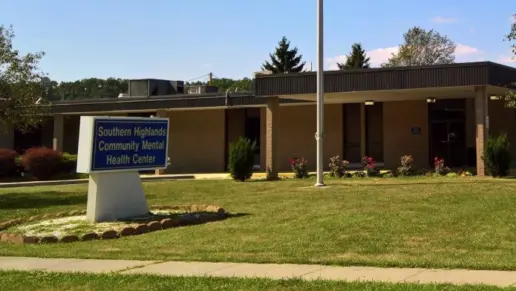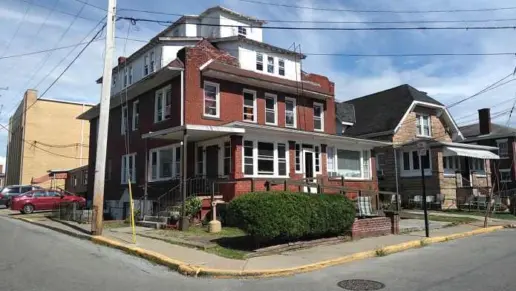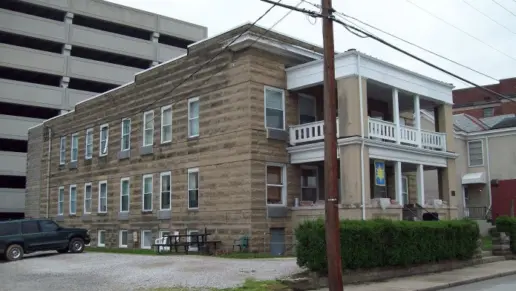Trash customer service honestly. Very difficult and demanding jobs are done by people who cannot even get a decent play from this place. Counselors expect you to sit in a group in uncomfortable chairs for 13 hours a day over and over a joke. Huge joke to the healthcare syste ...
About Northwood Health Systems
Northwood Health Systems is a nonprofit behavioral health center that provides substance use and mental health services in Wheeling, West Virginia. They strive to provide quality care to adults, adolescents, children and seniors. At their Ohio County clinic in Wheeling, they have a 16 bed unit available for individuals experiencing a crisis or in need of addiction treatment. Outpatient services are also available, with clients having access to case management services and individual and group therapy. Additional services that are available at this facility include detoxification, an intensive outpatient program (IOP), medication assisted treatment (MAT) and the DUI Safety and Treatment Program.
The therapists at Northwood Health Systems provide counseling to all members of the family who need it. This can help individuals who’ve struggled with emotional or mental issues as a result of a loved one’s addiction. The therapists are trained to deal with a variety of challenges patients may deal with, such as disruptive behavior in children and depression and anxiety in adults.
The IOP can be beneficial to clients who have moderate to severe symptoms of substance abuse. Patients will attend multiple individual and group therapy sessions throughout the week.
The Northwood Health Systems MAT program provides naltrexone and buprenorphine to help clients manage their withdrawal symptoms. These medications are most helpful for clients who have addictions to opioids. The staff combines this service with counseling as part of a patient’s addiction treatment.
For individuals who’ve been incarcerated, the facility’s DUI training program is a six week program that can be attended in person or via Zoom. The program can help clients satisfy state requirements to regain their driver’s license and learn more about issues around drinking and driving.
Rehab Score
Other Forms of Payment
Private insurance refers to any kind of healthcare coverage that isn't from the state or federal government. This includes individual and family plans offered by an employer or purchased from the Insurance Marketplace. Every plan will have different requirements and out of pocket costs so be sure to get the full details before you start treatment.
Self-pay involves paying for treatment out of your own pocket. You can use savings or credit, get a personal loan, or receive help from family and friends to fund your treatment. If you don't have insurance or your insurance plan doesn't cover a specific program, self-pay can help ensure you still get the care you need.
Financial aid can take many forms. Centers may have grants or scholarships available to clients who meet eligibility requirements. Programs that receive SAMHSA grants may have financial aid available for those who need treatment as well. Grants and scholarships can help you pai for treatment without having to repay.
Medicare is a federal program that provides health insurance for those 65 and older. It also serves people under 65 with chronic and disabling health challenges. To use Medicare for addiction treatment you need to find a program that accepts Medicare and is in network with your plan. Out of pocket costs and preauthorization requirements vary, so always check with your provider.
Medicaid is a state based program that helps lower-income individuals and families pay for healthcare. Medicaid covers addiction treatment so those enrolled can use their coverage to pay for rehab. When a program accepts Medicaid the client often pays very little or nothing out of their own pocket.
Military members, veterans, and eligible dependents have access to specific insurance programs that help them get the care they need. TRICARE and VA insurance can help you access low cost or no cost addiction and mental health treatment. Programs that accept military insurance often have targeted treatment focused on the unique challenges military members, veterans, and their families face.
Addiction Treatments
Levels of Care
Treatments
The goal of treatment for alcoholism is abstinence. Those with poor social support, poor motivation, or psychiatric disorders tend to relapse within a few years of treatment. For these people, success is measured by longer periods of abstinence, reduced use of alcohol, better health, and improved social functioning. Recovery and Maintenance are usually based on 12 step programs and AA meetings.
Drug addiction causes psychological and physical damage through repeated and uncontrollable use of substances. Drug rehab in West Virginia focuses on providing a full continuum of care, from detox to aftercare, and treatment can take place in outpatient or inpatient settings, based on your needs.
Many of those suffering from addiction also suffer from mental or emotional illnesses like schizophrenia, bipolar disorder, depression, or anxiety disorders. Rehab and other substance abuse facilities treating those with a dual diagnosis or co-occurring disorder administer psychiatric treatment to address the person's mental health issue in addition to drug and alcohol rehabilitation.
Opioid rehabs specialize in supporting those recovering from opioid addiction. They treat those suffering from addiction to illegal opioids like heroin, as well as prescription drugs like oxycodone. These centers typically combine both physical as well as mental and emotional support to help stop addiction. Physical support often includes medical detox and subsequent medical support (including medication), and mental support includes in-depth therapy to address the underlying causes of addiction.
Substance rehabs focus on helping individuals recover from substance abuse, including alcohol and drug addiction (both illegal and prescription drugs). They often include the opportunity to engage in both individual as well as group therapy.
Programs


Clinical Services
Through cognitive behavioral therapy in West Virginia, therapists encourage clients to identify negative thoughts, gain control over them, and develop ways to change their behaviors. This can be an effective way to break the cycle of addiction and overcome substance use disorder.
The core philosophies of dialectical behavior therapy in West Virginia are that everything is interconnected, change is inevitable, and you can integrate opposites to reach the truth. Treatment focuses on acceptance and change. You'll learn how emotions and behaviors are connected, accept your feelings, and learn how to change patterns of emotion and behavior.
Group therapy is any therapeutic work that happens in a group (not one-on-one). There are a number of different group therapy modalities, including support groups, experiential therapy, psycho-education, and more. Group therapy involves treatment as well as processing interaction between group members.
People in West Virginia seeking drug and alcohol addiction treatment usually undergo one on one individual therapy. This gives you a safe and supportive environment to explore issues with substance use and any co occurring mental health conditions. Your therapist offers individualized support to help you build resilience and work toward achieving long term sobriety.
Amenities
-
Private Setting
Contact Information
111 19th St
Wheeling, WV 26003


